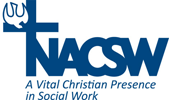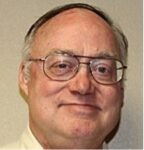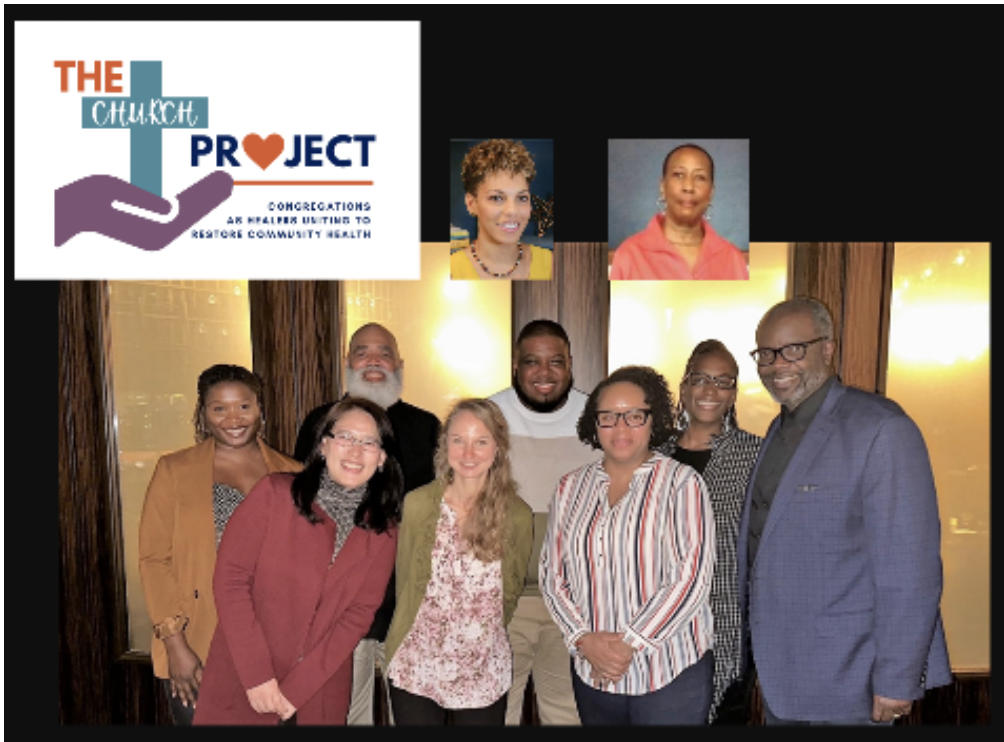Preconvention Institute Sessions on Thursday,
November 9, 2023
FULL day 9:00 am-4:30 pm (ET) OR
HALF DAY 8:30 am- 12:15pm and/or 1:15 – 5:00 pm (ET)
There are THREE options –
- One full day session for $110.00 and 6 CE’s
- One half-day session for $60.00 and 3.5 CE’s
- Both half-day session for $120.00 and 7 CE’s
Register online using the convention registration link.
Full-Day Session Option
Thursday, November 9, 2023
9am- 4:30 pm Eastern Time (6.0 CEs)
James W. Ellor, Ph.D., LCSW, DCSW
Social Work with First Responders at Times of Trauma with Psychological First Aid Certification
Each day, all around the world, first responders respond to a wide variety of traumas that reflect the human condition. Primary responders include Police, Firefighters, Emergency Medical Services (EMS) and dispatchers. Each of these groups have a diversity of sub-groups or related response teams. Still further behind these primary responders are the various volunteer groups who support each of these primary functions with force enhancement teams. In any given community this reflects hundreds of people in a unique system of persons trained to be present at the times of a major trauma or disaster. With proper training, most incidents are handled by these professionals with little or no personal impact on the responder. However, from time to time, out of nowhere, an event will touch these important community servants that is overwhelming to even their training. Sometimes these events will interact with some other even(s) that are more personal and sometimes the event itself is so horrific that it would traumatize anyone involved.
In this workshop we will begin to talk about the context of first responders. Who they are, what the parameters are of their response, and how the various volunteer groups support them. Next, we will discuss the context and offer examples of response approaches when a traumatized first responder is present in your agency. Finally, the group will talk about way in the future to begin to build resilience for responders to help reduce the impact of the various contexts that first responders encounter.
Learning Objectives:
As the result of this event, participants will be able to:
- Identify both micro and macro contexts of the local first response system.
- Discuss the impact of stress on anyone found in a trauma situation
- Dialogue about the various approaches to support persons in trauma
- Implement a system for building up resilience in support of first responders
Bio
Jim Ellor is the Dorothy Barfield Kronzer Endowed Professor in Family Studies, emeritus in the School of Social Work at Baylor University. Jim joined the Baylor faculty in August of 2004. He is an ordained minister in the Presbyterian Church, USA and on the pastoral staff of First Presbyterian Church of Waco, Texas. Jim has worked as a social worker for over 46 years. He has taught social work and gerontology for the past 40 years at the University of Chicago, National – Louis University and Baylor. He was one of the founding Directors of the Center for Aging Religion and Spirituality housed at Luther Seminary in St. Paul, Minnesota. He also served as a part – time on-call chaplain at Edward Hospital, in Naperville, Illinois as well as the chaplain to the Methodist Home of Chicago. He has also been an emergency room social worker at Augustana Hospital. Jim teaches Gerontology, medical and mental health social work at Baylor University. He is also the founder of the Psycho-Social Spiritual Intervention Team for the McLennan County Disaster System which is now a part of FEMA’s Medical Reserve Corp. where he trains the various teams of psycho-social crisis teams. He is also a National Response Team member of Presbyterian Disaster Assistance. He is currently the Vice – Chair of the Texas VOAD and Chaplain for the Heart of Texas Fire Corp. He has lectured in Berlin, Moldova and Canberra, Australia.
Jim has been the General Editor of the Journal of Religion Spirituality and Aging for the past 22 volumes. His recent books include James W. Ellor, (2010) (Ed.) Methods in Religion Spirituality and Aging on Routledge Press. Other recent books include Netting, F. E., & Ellor, J. W. (2004). Faith Based Initiatives and Aging Services, Binghamton: The Haworth Press. McKinlay, Elizabeth, James Ellor, and Stephen Pickard. (2002). Aging, Spirituality and Pastoral Care in the Twenty-First Century: A Multi-National Perspective. Binghamton: The Haworth Press. Ellor, J., McFadden, S., & Sapp, S. (1999). Tenth Anniversary Issue: Aging and Spirituality. San Francisco: American Society on Aging. Ellor, J., McGilliard, J., & Schroeder, P. (1994). Leading a Congregation in the Aging of Aging: Clergy Training Manual. Washington D. C.: National Council on the Aging. Ellor, J., Netting, E., & Thibault, J. (1999). Understanding Religious and Spiritual Aspects of Human Service Practice. Columbia: The University of South Carolina Press. Kimble, M., McFadden, S. H., Ellor, J. W., & Seeber, J. S. (1995). Aging, Religion and Spirituality: A Handbook. Minneapolis: Fortress Press. And Tobin, S.S., Ellor, J. W., Anderson-Ray, S. Enabling the Elderly, Albany: State University of New York Press.
Jim and his wife Janet have two daughters, who are married with 4 grandchildren who keep them very busy.
Bibliography
Croff, H. A., & Parker, C. (2011). I always sit with my back to the wall. Balanced Living Production.
Daniel, T., & Mandell, w. D. (2019). Grief and God: When religion does more harm than healing. First House Press.
Ellor, J. W., & Dolan, S. (2016). Lessons Learned from Disaster: Behavioral Health for Social Workers and Congregations. Social Work and Christianity, 43(1), 108-115.
Frankl, V. (1988). The Will to Meaning. A Meridian Book: New American Library.
Girdano, D. A., Dusek, D. E., & George S. Everly, J. (2009). Controlling Stress and Tension (8th ed.). Pearson.
Horne, P. V., & Riley, J. A. (2014). Left of Bang: How the Marine Corp Combat Hunter Program can Save your Life. Black Irish Entertainment.
Jones, S. (2009). Trauma + Grace: Theology in a Ruptured World. Westminster John Knox.
Matthew S. Stanford, H. K. O., James W. Ellor. (2021). Assessing the usefulness of the God Questionnaire. Psychology of religion and spirituality, 13(1), 46-52.
Peterson, J., & Densley, J. (2021). The Violence Project. Abrams Press.
Pryce, J. G., Pryce, D. H., & Shackelford, K. K. (2012). The Cost of Courage: Combat Stress, Warriors, and Family Survival. Lyceum Books, Inc.
Ramsey, N. J., & Doehring, C. (Eds.). (2019). Military Moral Injury & Spiritual Care. Chalice Press.
Scheffert, A. H. M., & Ellor, J. W. (2022). Addressing the Inequality of Disaster: The role of Faith – based Organizations in Disaster Response and Recovery. Social Work and Christianity, 49(4), 329-348.
Shapiro, F., & Forrest, M. S. (1997). EMDR: Eye Movement Desensitization & Reprocessing Up Dated Edition. Basic Books.
Half day Session Option #1
8:30 am – 12:15 pm Eastern Time (3.5 CEs)
Father Paul Abernathy
Introduction to Community Trauma
Although trauma can be found in every community, some communities have disproportionate trauma exposure. In such communities, trauma goes beyond a personal experience to a layering of events, circumstances and experiences that color the community’s worldview resulting in a culture that is informed first and foremost by trauma.
In this workshop we will explore the concept of community trauma and the nature of it’s impact on the quality of life in trauma affected communities. This will entail an exploration of paradigms associated with the experiences of community trauma, as well as introducing the possibility of interventions that result in community transformation.
Learning Objectives:
Participants will be able to:
- ● Define Community Trauma
- ● Acquire knowledge and language that would enable participants to identify traumaaffected communities
- ● Dialogue about potential responses and interventions that address community trauma
Bio
Rev. Paul Abernathy, MPIA, MDivFather Paul Abernathy is an Orthodox Christian priest and the founding CEO of the Neighborhood Resilience Project. Since 2011, Fr. Paul has labored with his community to address Community Trauma with Trauma Informed Community Development; A framework that facilitates the transformation of trauma affected communities to resilient, healing and healthy communities so that people can be healthy enough to sustain opportunities and realize their potential. Under Fr. Paul’s leadership, innovative trauma-informed grass-roots strategies have been developed and implemented to address acute, historical, transgenerational and complex trauma on a community level. In addition to programming, millions of dollars in various kinds of support have also been distributed to the Greater Pittsburgh Area with his direction. Community groups from across the nation have worked with Fr. Paul to be trained in the Trauma-Informed Community Development framework.
He has a B.A. in International Studies from Wheeling Jesuit University, and holds a Master in Public and International Affairs from the University of Pittsburgh. He also holds a Master of Divinity from St. Tikhon’s Orthodox Theological Seminary and was selected for Harvard Business School’s Young American Leaders Program. A former Non-Commissioned Officer in the U.S. Army, Father Paul is also a combat veteran of the Iraq War.
In addition to his work with the organization, Fr. Paul is and has been a member of multiple community, state, and national boards and has received numerous community awards.
Fr. Paul is the pastor of St. Moses the Black Orthodox Church, an author, and a husband and father of two children.
Half day Session Option #2
1:15 pm – 5:00 pm Eastern Time (3.5 CEs)
The CHURCH (Congregations as Healers Uniting to Restore Community Health) Team
Transformed by Renewing of Mind: Cognitive Behavioral Therapy (CBT)-based and Spiritually Informed Strategies to Promote Mental Well-being
The Scripture tells us that we should not conform to the pattern of this world but be transformed by the renewing of our minds. Without practice and discipline, our mind easily follows worldly patterns of thinking that not only disrupt our walk with God but also can negatively affect our mental health. Cognitive Behavioral Therapy (CBT) can provide tools we can use daily to reflect upon the content of our thoughts as well as the patterns of our thinking so that our mind is renewed every day until it is fully transformed according to the Word of God into a kingdom mentality.
Renew Your Mind (RYM) is a mental health training based on CBT and Biblical principles, developed by a team of Christian clinicians, pastors, and researchers, which can become part of a daily routine as a mind exercise for followers of Jesus Christ to maintain positive mental health. RYM was created through the CHURCH (Congregations as Healers Uniting to Restore Community Health) Project, a Community-Based Participatory Research (CBPR) project. This involved an academic-church partnership between multidisciplinary researchers at the University of Pittsburgh and pastors from the Homewood Community Ministry. Given the issue of limited access to quality evidence-based mental health services in African American communities, our project focused on implementing RYM in African American churches. Accordingly, cultural adaptation of CBT was a central process of developing the intervention, which entailed the incorporation of music and spirituality of the Black Church. The content will be relevant to all believers who want to learn science-based and biblically informed strategies to maintain positive mental health amid daily challenges, traumas, and other stressors.
After completing this training, participants will be able to
- Describe the importance of positive mental health for Christians as they deal with daily challenges, traumas, and other stressors.
- Summarize CBT-based and biblically informed strategies that can be used to cope with negative and unhelpful thoughts that try to disrupt our walk with God and jeopardize our mental health.
- Identify the benefits of spiritual music in maintaining positive mental health.
Presenter Bios
Dr. Jonathon Counts, D.Min, LCSW is the pastor of Spottswood AME Zion Church in New Britain, Connecticut (formerly the pastor of Homewood AME Zion Church) and serves as an adjunct professor at the University of Pittsburgh School of Social Work. He earned his Doctor of Ministry at Ashland Theological Seminary, his Master of Divinity from Wesley Theological Seminary, and his Master’s in social work from the University of Maryland School of Social Work.
Dr. Aliya Durham, Ph.D., MSW, MPIA is an assistant professor and the director of community engagement at the University of Pittsburgh. Dr. Durham earned a Bachelor of Arts in Africana Studies, a Master of Public and International Affairs, and a master’s in social work all from the University of Pittsburgh. Dr. Durham earned her Ph.D. in Community Engagement from Point Park University.
Dr. William R. Glaze has been the Pastor of Bethany Baptist Church in Pittsburgh, Pennsylvania since July 1990. He is the Founder and Dean of the Pittsburgh Laymen’s Bible Institute – offering certification in Biblical Counseling and other Bible-based certificates. He completed graduate studies at Liberty Baptist Theological Seminary in Lynchburg, Virginia, and earned a Doctor of Sacred Theology Degree from Bethany Theological Seminary in Dothan, Alabama.
Dr. Deborah Moon, PhD, LCSW is an assistant professor in the School of Social Work at the University of Pittsburgh. Dr. Moon earned a bachelor’s degree in biological engineering in South Korea, a master’s degree in music therapy from New York University and in Social Work from the University of Maryland, and a Ph.D. in Social Welfare from the University of Kansas. As the Co-Principal Investigator of the CHURCH project, Dr. Moon has been taking primary responsibility for the execution of the project in the past two years. (52 words). Before Dr. Moon started working at Pitt, she used to work as a clinical music therapist and a certified Trauma Focused-Cognitive Behavioral Therapist (TF-CBT), helping children, youths, and families with trauma exposure and other mental health challenges. Currently, Dr. Moon is pursuing an advanced specialization in Cognitive Behavioral Therapy (CBT) through the Beck Institute and is overseeing CBT education for graduate social work students as the lead instructor of CBT at the University of Pittsburgh. Dr. Moon’s current research focuses on developing, implementing, and evaluating evidence-based interventions designed to prevent mental illness and promote the mental health of marginalized children, youths, and families. Her research has been funded through the Centers for Disease Control and Prevention (CDC), Department of Health and Human Services, Doris Duke Foundation, the Institute of Education Sciences (IES), Health Resources and Services Administration (HRSA), The New York Community Trust Robert and Ellen Popper Scholarship Fund, and the Office of Provost at the University of Pittsburgh.
Bailey Nichols, LSW is a doctoral candidate at the University of Pittsburgh School of Social Work. She received her MSW from the University of Pittsburgh in 2020 and graduated from Ouachita Baptist University in 2013 with a B.S. in Biology and studies the integration of spirituality/religion in social work. (50 words)
Dr. Toya Jones, LCSW is the BASW Program Director at the University of Pittsburgh School of Social Work. She earned a Bachelor of Arts degree in Psychology from Indiana University of Pennsylvania, a master’s degree in social work, and a doctorate in Education from the University of Pittsburgh. Dr. Jones is a trauma expert and therapist with over twenty years of experience. (62 words)
Wallace, Jr., Ph.D. serves as Vice Provost for Faculty Diversity and Development and the interim director of the Center on Race and Social Problems, at the University of Pittsburgh, where he holds the David E. Epperson Endowed Chair. Dr. Wallace is also the senior pastor of Bible Center Church and the founder of The Oasis Project—the community and economic development division of Bible Center. Wallace earned his AB in sociology from the University of Chicago and an MA/Ph.D. in sociology from the University of Michigan. (87 words). As the Principal Investigator of the CHURCH project, Dr. Wallace has been providing leadership and oversight for the project for the past two years.
Dr. Paula Powe, M.D. is an assistant professor of psychiatry at the University of Pittsburgh. She received her M.D. from Howard University, completed her Psychiatry residency at Montefiore Medical Center, and a fellowship in Child and Adolescent Psychiatry at Yale Child Study Center. Dr. Powe’s work focuses on infant mental health and engaging Black fathers in early childhood programs that protect children from early adversity and toxic stress.
Bibliography
Coombs, A., Joshua, A., Flowers, M., Wisdom, J., Crayton, L. S. S., Frazier, K., & Hankerson, S. H.
(2022). Mental health perspectives among Black Americans receiving services from a church-affiliated mental health clinic. Psychiatric Services, 73(1), 77-82.
de Abreu Costa, M., Moreira-Almeida, A. Religion-Adapted Cognitive Behavioral Therapy: A Review and Description of Techniques. Journal of Religion and Health. 61, 443–466 (2022). https://doi.org/10.1007/s10943-021-01345-z
Davenport, A. D., & McClintock, H. F. (2021). Religiosity and attitudes toward treatment for mental health in the Black church. Race and Social Problems, 13(3), 226-233.
Hankerson, S. H., Wells, K., Sullivan, M. A., Johnson, J., Smith, L., Miller-Sethi, F., Crayton, L., Rule, A., Ahmad-Llewellyn, J., Rhem, D., Porter, X., Croskey, R., Simpson, E., Butler, C., Roberts, S., James, A. & Jones, L. (2018). Partnering with African American churches to create a community coalition for mental health. Ethnicity & Disease, 28(Suppl 2), 467.
Hays, K. (2015). Black Churches’ capacity to respond to the mental health needs of African Americans. Social Work & Christianity, 42(3).
Krause, N., & Hayward, R. D. (2014). Religious Music and Health in Late Life: A Longitudinal Investigation. The International Journal for the Psychology of Religion, 24(1), 10.1080/10508619.2012.761529. https://doi.org/10.1080/10508619.2012.761529Pearce MJ, Koenig HG, Robins CJ, Nelson B, Shaw SF, Cohen HJ, King MB. (2015). Religiously integrated cognitive behavioral therapy: a new method of treatment for major depression in patients with chronic medical illness. Psychotherapy. 52(1):56-66. doi: 10.1037/a0036448.
Potvin, N. & Flynn, C. (2019). Music Therapy as a Psychospiritual Ministry of Intercession During Imminent Death, Music Therapy Perspectives, 37(2), 120–132, https://doi.org/10.1093/mtp/miz002




